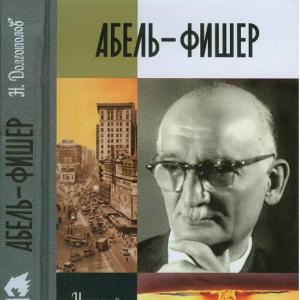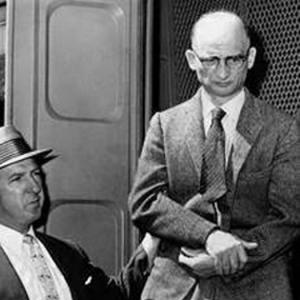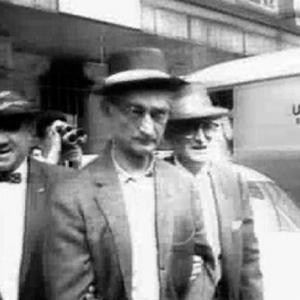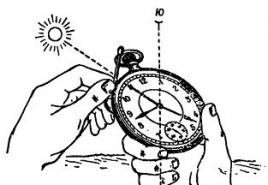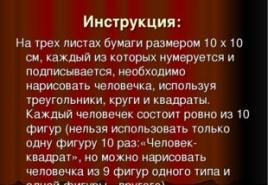The 1st All-Russian Congress of Princes took place in Lyubech. Lyubech congress of Russian princes: date, decisions, meaning
The world is large to satisfy human needs, but too small to satisfy human greed.
Mahatma Gandhi
Russia, torn apart by internecine wars, endless brutal raids of the Polovtsians, needed a truce, at least within the country, in order to get rid of all contradictions between the princes. It was for this purpose that the congress of princes in Lyubech, on the banks of the Dnieper River, in 1097. It was attended by 6 princes.
Lyubesky Congress of Princes - the goal
The ideological inspirer of this congress was Vladimir Monomakh. He spoke to the brothers, urging them to forget hostility, reconcile and together rid Russia of the common enemy - the Polovtsians. The Lyubesky Congress of Princes was successful and the most important thing was agreed upon: everyone should rule only in their own lands... Bily determined the spheres of influence, who will govern which cities. An example for everyone was given by Vladimir Monomakh himself, who voluntarily gave Oleg Svyatoslavich the city of Chernigov, a city that he himself ruled, but which in ancient times belonged to Oleg's parent. Otherwise, the following was decided:
- The congress of princes in Lyubech handed over Svyatopolk to the management of Kiev, and with it the tutul of the Grand Duke.
- Vladimir Monomakh became the ruler of Smolensk. Beloozersk, Pereyaslavl and Suzdal-Rostov lands.
- Oleg and Davit Svyatoslavich, by a common decision, received Chernigov, Murom, Razan and Tmutarakan.
- David Igorevich secured his right to rule Volodymyr-Volynsky.
- Vasilko Rostislavich also received Terebovl, Przemysl, and Cherven as his reign.
Thus, the congress of Russian princes in Lyubech had its main task to resolve the issue of spheres of influence in Kievan Rus. This is a sensitive issue that has spawned many wars. As a result, all the participants of the congress recognized the rights of others to the cities, which were assigned to them as a result of an oral agreement. The amusement congress ended with the kissing of the cross and the oath of all participants to eternal peace and friendship.
Congress of princes in Lyubech - results
The results achieved by the congress should become the basis, a solid foundation, for the construction of a new, powerful state. And this could have been achieved if not for the treachery of David Igorevich, the ruler of the city of Vladimir-Volynsky. He secretly informed Svyatopolk that Monomakh and Vasilko Rostislavich planned to seize the Kiev throne and secretly conspired behind the backs of others. Svyatopolk believed and invited Vasilko to Kiev. Vasilko went to Kiev. Entering Kiev he was informed about David's treachery, but Vasilko did not believe it, saying: “ We kissed the cross, Svyatopolk could not suspect me of treason". In Kiev, Vasilko was met by David, who forced him into prison, and his servants gouged out Vasilko's eyes. Thus, a new internecine war began in Russia. And the amicable congress of princes grew from a good undertaking into murders.
Second exit - end of civil strife
Seeing the need to stop David Igorevich in order to stop the internecine war in Russia, Vladimir Monomakh decided to convene a new congress of princes. It was attended by Monomakh himself, Svyatopolk, Oleg and David Svyatoslavichi, as well as David Igorevich himself. This congress was held on June 30, 1110 near Kiev. Monomakh, after consulting with other participants, announced that they were begging David Igorevich and did not want to take revenge on him. They assured him that he could live in peace on Russian land. As a token of his friendship, Svyatopolk gave David Igorevich the cities of Chertorizhsk and Dubna. Vladimir Monomakh, Oleg Svyatoslav and David Svyatoslavich provided 200 hryvnia of gold each. At this the internecine war ended.
The Lyubech congress was a meeting of Russian princes, whose main goal was to stop the internecine war and create a single state to resist foreign invaders.
The first congress of princes in Lyubech
The congress of Russian princes took place in the city of Lyubech (on the Dnieper river) in 1097. The reasons for convening the congress of princes in Lyubech were:
- cruel between the princes who fought with each other for territory and influence in Russia;
- the need to create a unified army for resistance, whose raids caused serious harm to the country.
The congress of Russian princes in Lyubech was proclaimed by Vladimir Monomakh, who was the first to understand all the sad consequences of civil strife.
The meaning of the Lyubech Congress
Kievan Rus at the end of the 11th century was in an extremely difficult situation. Since 1094, there was a constant struggle for territory, which greatly weakened the country and did not allow the gathering of a single army. The princes did not want to recognize each other's authority and tried to seize more and more territories from the enemy in order to gain profit and spread their influence. The situation was complicated by the Polovtsians.
Vladimir Monomakh was defeated at the Battle of Stugna in 1093, having ceded part of the territory to the invaders. Later, in 1094, Prince Oleg Svyatoslavich enlisted the support of the Polovtsians and expelled Vladimir from Chernigov. Enlisting the support of another prince, Svyatopolk Izyaslavich, Vladimir wanted to recapture his possessions, but at the same time the Polovtsians made a cruel raid on the southern territories. For two years Russia was constantly at war.
To rectify the situation, it was necessary to reconcile the princes - for this purpose, Vladimir Monomakh convened the Lyubech Congress for the first time.
The main decisions of the Lyubech Congress of Princes
During the meeting, the princes were mainly engaged in the redistribution of territories. After many hours of discussion, the congress of princes in Lyubech proclaimed the following: to conclude peace between the princes and oblige them to come to each other's aid in the struggle against the Polovtsy. The main goal of the Lyubech Congress was the creation of a unified state.
The territories were divided as follows:
- Vasilko Rostislavich (with his brother) - Terebovl, Cherven, Przemysl;
- Vladimir Monomakh - Principality of Pereyaslavl, Suzdal-Rostov land, Smolensk and Beloozero;
- Davyd Igorevich - Vladimir-Volynsky with Lutsk;
- Oleg and Davyd Svyatoslavich - Chernigov and Seversk land, Ryazan, Murom and Tmutarakan;
- Svyatopolk Izyaslavich - Kiev with Turov and Pinsk and the title of Grand Duke.
The congress of Russian princes in Lyubech proclaimed a new principle for the division of lands. The princes inherited the territories that belonged to their fathers - tribal distribution. Thus, it was possible to avoid disputes over possessions, and Russia gradually had to turn into a feudal state.
Consequences of the Lyubech Congress of Princes
Unfortunately, Prince Davyd Igorevich was dissatisfied with the new treaty and immediately after the meeting informed Svyatopolk that Vladimir Monomakh and Vasilko Rostislavich had a secret conspiracy and wanted to seize sole power in Russia. Svyatopolk believed and, at the insistence of Davyd, invited Vasilko to his place in Kiev, where the latter was immediately accused of treason and put in prison.
Vladimir Monomakh, seeing that a new conflict began, convened the second congress of princes (1110), at which a final peace treaty was concluded. Prince David was forgiven for his betrayal.
Results of the Lyubech Congress of Princes
Thanks to the fact that the princes managed to agree, the civil strife in Russia ended and the state gradually united to repel the Polovtsy. The Grand Dukes were able to unite their troops and resist the invaders, and Russia passed into a new era with a new political system.
Appendix 16
"Descendants of Yaroslav the Wise on the Kiev throne"
Appendix 17
Reference material.
Lyubech Congress (1097) - the congress of Russian princes, held in the city of Lyubech (on the Dnieper) with the aim of agreeing on the cessation of internecine princely feuds over inheritances and rallying against the Polovtsy who were ravaging Russia. It established a completely new principle of ownership of princely estates. “Let Kozhdo keep his fatherland,” read the final definition of the congress. Thus, the Russian land ceased to be considered a single possession of the entire princely house of the Rurikovechs, and turned into a set of separate "patrons", hereditary possessions of the branches of the princely house.
In the “History of the Russian State” (Vol.1.Ch.VI), giving a description of the Lyubech congress, N.M. Karamzin wrote: “Several months later, Russia saw for the first time a solemn meeting of its Princes on the banks of the Dnieper, in the city of Lyubech. Sitting on the same carpet, they reasonably reasoned that the fatherland was dying from their disagreement; that they should finally stop civil strife, remember the ancient glory of their ancestors, unite in soul and heart, calm the external robbers, the Polovtsians, - calm the State, earn the love of the people. There is no doubt that Monomakh, a friend of the fatherland and the most prudent of the Princes of Russia, was the culprit and soul of this memorable meeting. As an example of moderation and disinterestedness, he ceded to the Svyatoslavichs everything that once belonged to their parent, and the Princes, by common consent, approved the Kiev region for Svyatopolk, for Monomakh the private inheritance of his father: Pereslavl, Smolensk, Rostov, Suzdal, Beloozero; after Oleg, David and Yaroslav Svyatoslavich - Chernigov, Ryazan, Mur; behind David Igorevich - Vladimir Volynsky; after Volodar and Vasilko Rostislavich - Przemysl and Terebovl, given to them by Vsevolod. Everyone was pleased; each kissed the holy cross, saying: let the Russian land be a common fatherland for us; but whoever rises up against a brother, we will all rise up against him. The good people blessed the consent of their Princes: the Princes hugged each other as true brothers. "
According to The Tale of Bygone Years, 6 princes were present at the Lyubech congress.
Svyatopolk Izyaslavich, as the eldest, was left Kiev with Turov and Pinsk and the title of Grand Duke. Vladimir Monomakh - the Principality of Pereyaslavl, Suzdal-Rostov land, Smolensk and Beloozero. Oleg and David Svyatoslavich - Chernigov and Seversk land, Ryazan, Murom and Tmutarakan.
David Igorevich - Vladimir-Volynsky with Lutsk. Vasilko Rostislavich (with his brother) - Terebovl, Cherven, Przemysl.
The Lyubech congress, proclaiming the principle of inheritance by princes of the lands of their fathers, stated the existence of a new political system in Russia - Udelnaya Rus, the basis of which was the prevailing large feudal land ownership. However, the Lyubech congress could not give real guarantees of the implementation of its decisions. Immediately after the Lyubech Congress, David Igorevich, with the consent of Svyatopolk, blinded Vasilko Rostislavich, which entailed new wars between the princes.
Appendix 18
Biography.
Vladimir II Vsevolodovich Monomakh (church name Vasily) (1052-1125)
- Prince of Smolensk (from 1067), Chernigov (from 1078), Grand Duke of Kiev (1113–1125);
The son of the Kiev prince Vsevolod Yaroslavich and Anna, the daughter of the Byzantine emperor Constantine IX Monomakh, in whose honor Vladimir received his nickname "Monomakh".
Born in 1052. Even at the beginning of his reign in Kiev, he won the glory of the winner of the Polovtsians and peacemaker. He enjoyed popular love and influence among other princes.
His father, the great Kiev prince Vsevolod I, bequeathed to Vladimir the great reign in Kiev, but Monomakh did not want the resumption of internecine wars, refused this honor and, following the principle of seniority in the family, proclaimed his cousin Svyatopolk II Izyaslavich to be the Grand Duke of Kiev. The testament of Vsevolod I came true only after the death of Svyatopolk II.
In relations with appanage princes, he strove to maintain peace. As a prince of Smolensk, in 1078 Vladimir received from his father in the reign of Chernigov. Owning it, he built a castle in Lyubech in his residence, capable of withstanding a long siege. But when in 1094 Prince Oleg Svyatoslavovich appeared under the walls of Chernigov at the head of the Polovtsian army in order to return the city in which his father had once ruled, Vladimir refused to fight and left the city with a small squad for Pereslavl. Later he transferred Pereslavl to his brother Rostislav and reigned in Smolensk. He actively helped the appanage princes in the struggle against external enemies: the Chernigov prince Svyatoslav - with the German emperor Henry IV, when he "went with his squad" through Bohemia to Silesia. He was one of the initiators and active participants of the congresses of appanage princes - in Lyubech (in 1097) and in Uvetichi (Vitichev) (in 1100).
Vladimir Monomakh repeatedly took part in campaigns against the Polovtsians (in 1093, 1094, 1095, 1101, 1103, 1107, 1110, 1111, etc.). In his own words, he made peace with the Polovtsians nineteen times, using every opportunity for this. But he often initiated retaliatory attacks on the Polovtsians (1095), constantly pushed other princes to pursue an offensive policy towards the Polovtsians.
In 1113, after the death of the Grand Duke of Kiev Svyatopolk II Izyaslavich, a popular uprising against the usurers broke out in Kiev. In the hope of ending the unrest, the elite of the noble Kievites called on Vladimir Monomakh to reign with a request "to save him from the violent rabble." Having suppressed the turmoil and became the princes of Kiev, Vladimir II Monomakh saw the need to understand the causes of the unrest. As a result, the norms of debt law were settled. This was reflected in the "Charter of Vladimir Monomakh", which was later included in the lengthy edition of "Russian Pravda". According to the "Charter", the position of debtors and purchases (mercenaries) was improved, servitude for debts was canceled, the exact amount of cuts (interest) charged for usurers was established (no more than 100%). Continuing the legislative work of Yaroslav the Wise, Vladimir Monomakh made many changes to Russkaya Pravda. Their goal was the need to establish the "law" - a fair ("righteous") judgment according to Christian commandments.
During the reign of Vladimir II in Kiev, the struggle with the Polovtsians resumed - the campaigns of 1116 and 1120. In 1116, Vladimir Monomakh sent his son Mstislav to the campaign against the Polovtsians. Monomakh himself fought against Byzantium that year.
He actively supported the struggle of the Novgorodians and Pskovites against the Chud tribe in the north-west (not far from Lake Peipsi); in the northeast, Monomakh's son Yuri Dolgoruky won a victory against the Bulgarians and Mordovians. In 1120 the Pechenegs were expelled from Russia.
The reign of Vladimir Monomakh, although short in time, was a period of political and economic strengthening of Russia, the flourishing of culture and literature. Under him, churches were built, chronicle vaults were created, and the compilation of the Caves patericon began, which included the lives of Anthony and Theodosius of the Caves, Princess Olga, Prince Vladimir I Svyatoslavich, princes Boris and Gleb.
Vladimir Monomakh was a well-educated person for his time and possessed a literary talent. In "Instructions for Children" (about 1117) Monomakh appeared as a wise statesman, "a great sadden on the earth," "a caring householder," an enlightened thinker, a brave warrior and a well-read scribe, a brilliant master of words. Addressing his heirs, the author exclaimed: “Children! Do not be afraid of either rati or the beast, do a man's work, nothing can harm you! " And he added: "Do not forget the poor, orphans and widows!" Poetic "surprise" of the prince with the beauties of nature made his work a worthy predecessor of "The Lay of Igor's Host." The main thing in the "Precept" is a call for the unity of Russia, brotherly love, condemnation of civil strife.
Vladimir Monomakh bequeathed the grand-princely throne in Kiev to his eldest son Mstislav the Bold, thereby establishing a new order of succession, aimed at centralizing the princely power. Vladimir Monomakh was one of the last great princes of Kiev, under whom it was possible to preserve the unity of Russia. After the death of his son Mstislav, who ruled for only 7 years, the chronicler wrote: "the whole Russian land was torn."
Vladimir Monomakh died on May 19, 1125, while on a campaign. According to the chronicle, “his glory passed through all countries, but he was especially terrible, filthy; he was a brother-lover and a beggar and a kind sufferer for the Russian land. "
SM Solovyov believed that Kievan Rus, in an atmosphere of internecine struggle, for a brief moment returned to its former glory under Monomakh: by performing his duties, he covered up the shortcomings of the existing order, made it not only bearable for the people, but even capable of satisfying their social needs. "
Appendix 19
The works of Vladimir Monomakh were written in the 11th – early 12th centuries and are known under the name "Instruction". They are part of the Laurentian Chronicle. The Lecture is a kind of collection of the prince's works, including the Lecture itself, an autobiography and a letter from Monomakh to Prince Oleg Svyatoslavich. The author of the "Precept" appears as a highly educated bookish person, erudite, well versed in the literature of his time, which is evident from the numerous quotes that he cites in his work.
"Instruction" was the political and moral testament of the prince.
At the beginning of the "Teachings" Monomakh gives a number of moral admonitions: do not forget God, do not have pride in your heart and mind, respect old people; judge for yourself, orphan and widow, and do not let the mighty destroy a man. Honor the old as a father, and the young as brothers. Honor the guest most of all. Don't miss a person without greeting him, and say a good word to him. "
Gradually, "The Instruction" develops into an autobiography, in which the prince says that he was a member of 82 large military campaigns. He tried to build his life according to the same rules that he writes to his sons. Monomakh appears in his work as an unusually active person, a zealous champion of enlightenment. He believes that in everyday life the prince should be a model for others, family relations should be built on respect. In the "Instruction" Monomakh covers a wide range of life phenomena, provides answers to many social and moral questions of his time.
The third work of Vladimir Monomakh is a letter to his cousin Oleg Svyatoslavich, written about the death of his own son Izyaslav, who was killed by Oleg in battle. According to Monomakh, the problem is not that another prince died on the battlefield. The trouble is that princely strife and strife are ruining the Russian land. Monomakh believes that it is time to end these fratricidal wars. The prince offers peace to Oleg: "I am not your enemy, not an avenger ... And I offer you peace because I do not want to be dashing, but I want good for all our brethren and the Russian land."
Academician D.S. Likhachev, the author of one of the best modern translations of The Teachings, noted that “Monomakh's letter is amazing. I do not know in world history anything similar to this letter from Monomakh. Monomakh forgives the murderer of his son. Moreover, he consoles him. He invites him to return to the Russian land and receive the principalities relying on inheritance, asks him to forget the grievances. "
From The Teachings of Vladimir Monomakh:
“... Oh I, long-suffering and sad! You fight a lot, soul, with your heart, and you overcome my heart; we are all perishable, and therefore I am thinking how not to appear before a terrible judge, without repenting and not making peace with one another.
For whoever says: “I love God, but I don’t love my brother,” this is a lie. And again: "If you do not forgive your brother's sins, then your heavenly father will not forgive you either." The Prophet says: "Do not compete with those who are crafty, do not envy those who do lawlessness." "What is better and more beautiful than living for brothers together." But all the instigation of the devil! There were wars under our clever grandfathers, under our good and blessed fathers. The devil quarrels us, because he does not want good for the human race. I wrote this to you, because my son, baptized by you, who sits close to you, urged me. He sent his husband to me and a letter, with the words: “Let's agree and make peace, but God's judgment has come to my brother. And we will not be avengers for him, but we will put it on God when they appear before God; but we will not destroy the Russian land. " And when I saw the humility of my son, I took pity and, fearing God, said: “Because of his youth and foolishness, he is so humbled, he places it on God; I am a man, more sinful than all people. "
I listened to my son, wrote you a letter: whether you receive it kindly or with disgrace, I will see both from your letter. With these words, I warned you what I expected from you, wishing with humility and repentance from God forgiveness of my past sins. Our Lord is not a man, but the God of the entire universe - whatever he wants, he will do everything in the blink of an eye - and yet he himself endured blasphemy, and spitting, and blows and gave himself up to death, having control over life and death. And what are we, sinful and bad people? Today they are alive, and tomorrow they are dead, today in glory and honor, and tomorrow they are forgotten in the grave. Others will share what we have collected.
Look, brother, at our fathers: what have they saved up, and what are their clothes for? They only have what they have done to their souls. With these words, you were the first, brother, to send to me and warn me. When they killed the child, mine and yours, in front of you, you should, having seen his blood and his body, withered like a flower that bloomed for the first time, like a slain lamb, to say, standing over him, pondering the thoughts of your soul: “Alas, me, What I've done! And, taking advantage of his foolishness, for the sake of the unrighteousness of this vain light, I made a sin for myself, and for my father and mother - tears! "
I should have said to you in the words of David: "I know, my sin is always before me." Not because of the shedding of blood, but having committed adultery, God's anointed David sprinkled on his head and wept bitterly - at that hour his God forgave him his sins. You should repent to God, but write a letter of consolation to me and send my daughter-in-law to me - for there is neither evil nor good in her - so that I, embracing her, mourn her husband and that wedding of theirs, instead of songs: for I did not see I am their first joy, nor their wedding, for my sins. For God's sake, let her come to me as soon as possible with the first ambassador, so that, having wept with her, he would settle her at home, and she would sit like a turtle dove on a dry tree, grieving, and I myself would be comforted in God.
Our grandfathers and our fathers went this way: judgment from God came to him, and not from you. If then you had done your will and obtained Murom, and you had not taken Rostov and sent to me, then we would have settled from here. But judge for yourself whether I was worthy to send to you or you to me? If you had told my son: "Get along with the father," I would have sent ten times.
Is it surprising that the husband fell in the war? The best of our ancestors died like that. But he should not have looked for someone else and led me into shame and sadness. After all, his servants taught him to get something for themselves, but they got evil for him. And if you begin to repent to God and you will be good-hearted to me, sending your ambassador or bishop, then write the letter with the truth, then you will receive the volost well, and you will turn our heart to yourself, and we will be better than before: I am neither your enemy nor avenger. I didn't want to see your blood at Starodub's; but God forbid to see blood neither from your hand, nor from your command, nor from any of the brothers. If I lie, then God is my judge and an honest cross! If this is my sin, that I went to Chernigov against you because of the pagans, I repent of that, I have spoken to my brethren more than once and told them, for I am a man.
... For I do not want evil, but I want good for the brethren and the Russian land. And what you want to get by violence, we, taking care of you, gave you and in Starodub your fatherland. God knows that your brother and I dressed up if he can't dress up without you. And we didn’t do anything wrong, we didn’t say: send with your brother until we’re settled. If any of you does not want good and peace to Christians, may that from the God of peace not see his soul in the next world!
I do not say this out of need, or because of some misfortune sent by God, you yourself will understand, but my soul is dearer to me than all this world ... "
See: Russian Civilization - Information-analytical and encyclopedic portal
Appendix 20
“The political fragmentation of Russia, the second half of the XII. - the beginning of the XIII centuries. "
Lyubech Congress (1097) - the congress of Russian princes, held in the city of Lyubech (on the Dnieper River) with the aim of agreeing on the cessation of inter-princely strife over inheritance and rallying against the Polovtsy who were ravaging Russia. The immediate reason for the congress was the need to conclude peace with Oleg Svyatoslavich, against whom Svyatopolk Izyaslavich and Vladimir Monomakh fought since 1094.
Vladimir Monomakh, who was his right hand in Chernigov during his father's lifetime, participated in the devastating battle for the Russians at Stugna (1093), and in 1094 Oleg Svyatoslavich, with the support of the Polovtsy, expelled Vladimir from Chernigov. Svyatopolk Izyaslavich of Kiev came to the aid of Vladimir, but the Polovtsy attacked the southern borders of Russia. In 1096-1097, Mstislav Vladimirovich with Novgorodians and Vyacheslav Vladimirovich with Polovtsians fought with Oleg for Mur, Ryazan, Suzdal and Rostov, defeating him at Koloksha. Mstislav, as Oleg's godson, petitioned not to deprive him of the Russian land before his father and called him to conclude peace.
At the Lyubech congress (according to the "Tale of Bygone Years"), 6 princes were present and the decision was made: " Kozho hold on to your own«.
- Svyatopolk Izyaslavich, as the eldest, was left Kiev with Turov and Pinsk and the title of Grand Duke;
- Vladimir Monomakh - Pereyaslavskoe principality, Suzdal-Rostov land, Smolensk and Beloozero;
- Oleg and Davyd Svyatoslavich - Chernigov and Severskaya land, Ryazan, Murom and Tmutarakan;
- Davyd Igorevich - Vladimir-Volynsky with Lutsk;
- Vasilko Rostislavich (with his brother) - Terebovl, Cherven, Przemysl.
In fact, the decision only sharply redistributed ownership between Vladimir Vsevolodovich and Svyatoslavich in favor of the latter.
The congress proclaimed the principle of inheritance by princes of the lands of their fathers, that is, the inheritance rights of each of the several principalities that had developed at that time were limited by the framework of a certain branch of the Rurik dynasty. This stated the existence of a new political system in Russia, the basis of which was the prevailing large feudal land tenure. According to the BRE, the Svyatoslavichs, who received a vast Chernigov principality by the decisions of the congress, were excluded from the heirs of Kiev.
Immediately after the Lyubech Congress, which stopped civil strife on the left bank of the Dnieper, the war for the southwestern volosts (1097-1100) began - with the unprecedented at that time blinding of Rurikovich (Vasilko Rostislavich Davyd Igorevich). During the war, Davyd tried to seize the principality of Vasilka, and Svyatopolk - Volyn, Przemysl and Terebovl. As a result, the Rostislavichs managed to defend their possessions, and Volyn passed from Davyd to Svyatopolk by the decision of a new
In the history of Russia, as, indeed, of any other country, there are many dark pages, when the bloody ones became the cause of great disasters for the people and created favorable conditions for invaders of all stripes. It was in this situation that Russia found itself at the end of the 11th century due to the strife between Oleg Svyatoslavich, Vladimir Monomakh and Svyatopolk Izyaslavich, the end of which was called to end by the congress of princes in Lyubech.
Background
To understand what happened in Russia in the period from 1093 to 1097, it is necessary to start the story with a description of the war of the three sons of Svyatoslav Yaroslavich for the inheritance. In particular, Oleg Svyatoslavich, having called for the help of the Polovtsi, was able to take away from his cousin, Vladimir Monomakh, Chernigov, which had previously been the capital city of his father. Further, the prince took Ryazan and, having killed the Murom ruler Izyaslav in battle, captured his capital, as well as Suzdal and Rostov. Such an act, even in those days, was considered as the greatest crime, and all representatives of the Monomakh family, who managed to win back their estates, took up arms against Oleg. But the external threat hanging over the country made the irreconcilable enemies think about how, at least for a while, to forget about the contradictions and not weaken Russia by internecine wars.
Participants of the princely congress in Lyubech
The initiator of the collection of the most famous appanage rulers of that time was Vladimir Monomakh - the grandson of the Byzantine emperor Constantine IX. This prince, in his early youth, showed remarkable intelligence and the ability to compromise. In particular, in 1093, having the opportunity to ascend the Kiev throne, he ceded it to Svyatopolk in order to avoid war, and in 1094 he voluntarily left Chernigov, as he understood that he could not stand alone against Oleg Svyatoslavich and the Polovtsy. In addition, he was an extremely ambitious person with far-reaching political plans.
Among those invited to the congress of princes in Lyubech were the grandchildren of Yaroslav the Wise Davyd Igorevich, as well as Davyd and Oleg Svyatoslavichi. In addition, his great-grandson, Vasilko Rostislavich, was summoned from Terebovlya.
Year 1097: Congress of Princes in Lyubech
The need for a meeting of the country's most influential rulers is long overdue. However, Vladimir Monomakh did not manage to persuade Oleg Svyatoslavich to come to Kiev, as he feared an attack. Finally it was decided to hold a congress of princes in Lyubech. This castle also belonged to Monomakh, but no one lived there for a long time. As the chronicles of those years testify, Prince Vladimir spoke to the brothers and urged them to forget the enmity and stand up to defend the Motherland from the common enemy - the Polovtsians.

Results of the congress in Lyubech
After heated discussion, the princes redistributed the principalities as follows:
- Syatopolk Izyaslavich got Kiev with Pinsk and Turov;
- Vladimir Monomakh received Smolensk, Suzdal-Rostov land, Beloozero;
- Davyd Igorevich was supposed to manage Vladimir-Volynsky with Lutsk;
- Vasil'ka Rostislavich together with his brother Volodar were given Terebovl, Przemysl and Cherven;
- Davyd and Oleg Svyatoslavich began to rule in Chernigov, as well as in the Seversk land, Ryazan, Murom and Tmutarakan.
Thus, the congress of princes in Lyubech proclaimed the principle of inheritance by Russian princes of lands belonging to their fathers, and its most important result was the formation in Russia of a new political system based on the existing large feudal land ownership, concentrated in the hands of different branches.

Subsequent events
Unfortunately, the congress of Russian princes in Lyubech could not lead to the establishment of a lasting peace in Russia, since David Igorevich secretly sent a messenger to Svyatopolk with a message about the allegedly impending seizure of the Kiev throne by Vladimir Monomakh and Vasilko Rostislavich. This insidious act brought a lot of troubles to our country. The fact is that Svyatopolk, who believed the libel, invited Vasilko to Kiev, imprisoned him and blinded him. Moreover, there is evidence that Rostislavich was warned of an impending trap. However, he replied that the princes in Lyubech “kissed the cross,” so he did not believe that he could be in danger. The result of the actions of Svyatopolk and David Igorevich was a new internecine war, which lasted until 1110.

Congress in Uvetichi
In the summer of 1110, the princes Vladimir Monomakh, Svyatopolk, Davyd and Oleg Svyatoslavich gathered and "created peace among themselves." Then they called David Igorevich to trial, deprived Vladimir-Volyn principality, but assured that they were not going to take revenge on him. In addition, Svyatopolk gave him Dubna and Chertorizhsk, and the Svyatoslavichs gave him a large sum of money. Since the interests of all parties were taken into account, the internecine war ended.
Thus, the goal of the congress of princes in Lyubech, which was to achieve a lasting peace in Russia, was not achieved due to the ambitions of some of its participants.

